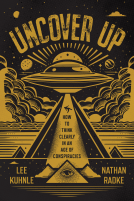
Starbound
Interstellar Travel and the Limits of the Possible
by Ed Regis
This title was previously available on NetGalley and is now archived.
Send NetGalley books directly to your Kindle or Kindle app
1
To read on a Kindle or Kindle app, please add kindle@netgalley.com as an approved email address to receive files in your Amazon account. Click here for step-by-step instructions.
2
Also find your Kindle email address within your Amazon account, and enter it here.
Pub Date Mar 13 2025 | Archive Date Mar 01 2025
Talking about this book? Use #Starbound #NetGalley. More hashtag tips!
Description
This book is for anyone enthralled by the romantic dream of a voyage 'to the stars.' From our current viewpoint in the twenty-first century, crewed interstellar travel will be an exceptionally difficult undertaking. It will require building a spacecraft on a scale never before attempted, at vast cost, relying on unproven technologies. Yet somehow, through works of science fiction, TV and movies, the idea of human interstellar travel being easy or even inevitable has entered our popular consciousness. In this book, Ed Regis critically examines whether humankind is bound for distant stars, or if instead we are bound to our own star, for the indefinite future. How do we overcome the main challenge that even the nearest stars are unimaginably far away? He explores the proposed technologies and the many practical aspects of undertaking an interstellar journey, finishing with his reflections on whether such a journey should be planned for.
Advance Praise
“A deeply researched, fascinating, and sobering look at the possibility of interstellar travel.” Kelly Weinersmith, co-author of A City on Mars
“Ed Regis’s Starbound offers a rich analysis of the rationales used by advocates to support future interstellar travel as well as the scientific, technological, and biological challenges to be met in the endeavor. In so doing Regis injects into the vision of becoming a multiplanetary species an important dose of reality missing from most discussions of such human migration.” Roger D. Launius, former NASA chief historian
Available Editions
| EDITION | Hardcover |
| ISBN | 9781009457590 |
| PRICE | $29.95 (USD) |
Available on NetGalley
Average rating from 3 members
Readers who liked this book also liked:
Alvin E. Roth
Business, Leadership, Finance, Health, Mind & Body, Politics & Current Affairs
Andrew Guthrie Ferguson
Computers & Technology, Nonfiction (Adult), Politics & Current Affairs


















